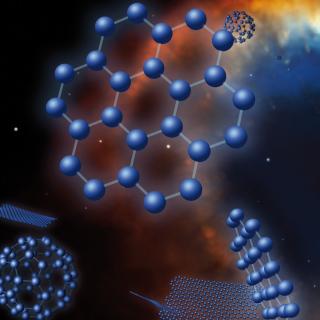Bibcode
Izzard, R. G.; Preece, Holly; Jofre, Paula; Halabi, Ghina M.; Masseron, T.; Tout, Christopher A.
Referencia bibliográfica
Monthly Notices of the Royal Astronomical Society, Volume 473, Issue 3, p.2984-2999
Fecha de publicación:
1
2018
Número de citas
78
Número de citas referidas
77
Descripción
The combination of asteroseismologically measured masses with abundances
from detailed analyses of stellar atmospheres challenges our fundamental
knowledge of stars and our ability to model them. Ancient red-giant
stars in the Galactic thick disc are proving to be most troublesome in
this regard. They are older than 5 Gyr, a lifetime corresponding to an
initial stellar mass of about 1.2 M⊙. So why do the
masses of a sizeable fraction of thick-disc stars exceed 1.3
M⊙, with some as massive as 2.3 M⊙? We
answer this question by considering duplicity in the thick-disc stellar
population using a binary population-nucleosynthesis model. We examine
how mass transfer and merging affect the stellar mass distribution and
surface abundances of carbon and nitrogen. We show that a few per cent
of thick-disc stars can interact in binary star systems and become more
massive than 1.3 M⊙. Of these stars, most are single
because they are merged binaries. Some stars more massive than 1.3
M⊙ form in binaries by wind mass transfer. We compare our
results to a sample of the APOKASC data set and find reasonable
agreement except in the number of these thick-disc stars more massive
than 1.3 M⊙. This problem is resolved by the use of a
logarithmically flat orbital-period distribution and a large binary
fraction.
Proyectos relacionados

Nucleosíntesis y procesos moleculares en los últimos estados de la evolución estelar
Las estrellas de masa baja e intermedia (M < 8 masas solares, Ms) representan la mayoría de estrellas en el Cosmos y terminan sus vidas en la Rama Asintótica de las Gigantes (AGB) - justo antes de formar Nebulosas Planetarias (NPs) - cuando experimentan procesos nucleosintéticos y moleculares complejos. Las estrellas AGB son importantes
Domingo Aníbal
García Hernández